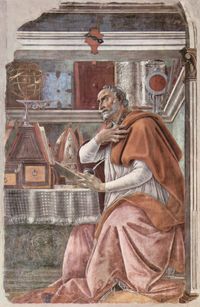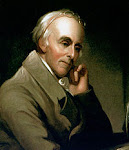 "When you need to shoot, shoot, don't talk."
"When you need to shoot, shoot, don't talk."-Tuco Ramirez
(The Good, The Bad, and The Ugly)
A daily dose of quotability.






























- Samuel Taylor Coleridge (1772-1834).
"All thoughts, all passions, all delights
Whatever stirs this mortal frame,
All are but ministers of Love,
And feed his sacred flame."

.jpg)



But he, being full of the Holy Spirit, gazed into heaven and saw the glory of God, and Jesus standing at the right hand of God, and said, "Look! I see the heavens opened and the Son of Man standing at the right hand of God!"
Then they cried out with a loud voice, stopped their ears, and ran at him with one accord;
and they cast him out of the city and stoned him. And the witnesses laid down their clothes at the feet of a young man named Saul.
And they stoned Stephen as he was calling on God and saying, "Lord Jesus, receive my spirit." Then he knelt down and cried out with a loud voice, "Lord, do not charge them with this sin." And when he had said this, he fell asleep.Acts 7.54-60 (New King James Version).
Love came down at Christmas,- Christina Rossetti (1830-1894), English poet.
Love all lovely, Love Divine;
Love was born at Christmas,
Star and Angels gave the sign.
Worship we the Godhead,
Love Incarnate, Love Divine;
Worship we our Jesus:
But wherewith for sacred sign?
Love shall be our token,
Love shall be yours and love be mine,
Love to God and all men,
Love for plea and gift and sign.
And once you love Him, you will be an imitator of His kindness. And you must not be surprised that man can become an imitator of God. He can, since He so wills. Certainly, to be happy does not mean to tyrannize over one's neighbors, or to wish to have an advantage ove rthe weaker ones, or to be rich and therefore able to use force against one's inferiors. It is not in such matters that one can imitate God; no, such amtters are foreign to His majesty. On the other hand, he who takes his neighbor's burden upon himself, who is willing to benefit his inferior in a matter in which he is his superior, who provides the needy with what he himself has received from God and thus becomes the god of the recipients -- he, I say, is an imitator of God!- Epistle to Diognetus 10.4-6 (Ancient Christian Writers translation).
Honor, riches, marriage blessing,
Long continuance, and increasing,
Hourly joys be stil upon you!
June sings her blessings on you.
Earth's increase, foison plenty,
Barns and garners never empty,
Vines with clust'ring bunches growing,
Plants with goodly burden bowing;
Spring come to you at the farthest
In the very end of harvest.
Scarcity and want shall shun you,
Ceres' blessing so is on you.
If we appreciate the force of powerful emotions aroused by the Temple cult, we may understand how grand a revolution was effected in the simple declaration, so long in coming, that with the destruction of the Temple the realm of the sacred had finally overspread the world. We must now see in ourselves, in our selfish motives to be immolated, the noblest sacrifice of all. So Rabban Gamaliel son of Rabbi Judah the Patriarch said, "Do His will as if it was your will, so that He may do your will as if it ws His will. Make your will of no effect before His will, that He may make the will of others of no effect before your will." His will is that we love our neighbors as ourselves. Just was willingly as we would contribute bricks and mortar for the building of a sanctuary, so willingly we ought to contribute love, renunciation, self-sacrifice, for the building of a sacred community. If one wants to do something for God in a time when the Temple is no more, the offering must be the gift of selfless compassion. The holy altar must be the streets and marketplaces of the world.- Jacob Neuser, Judaism in the Beginning of Christianity (Fortress Press: 1984), pgs. 98-99.






